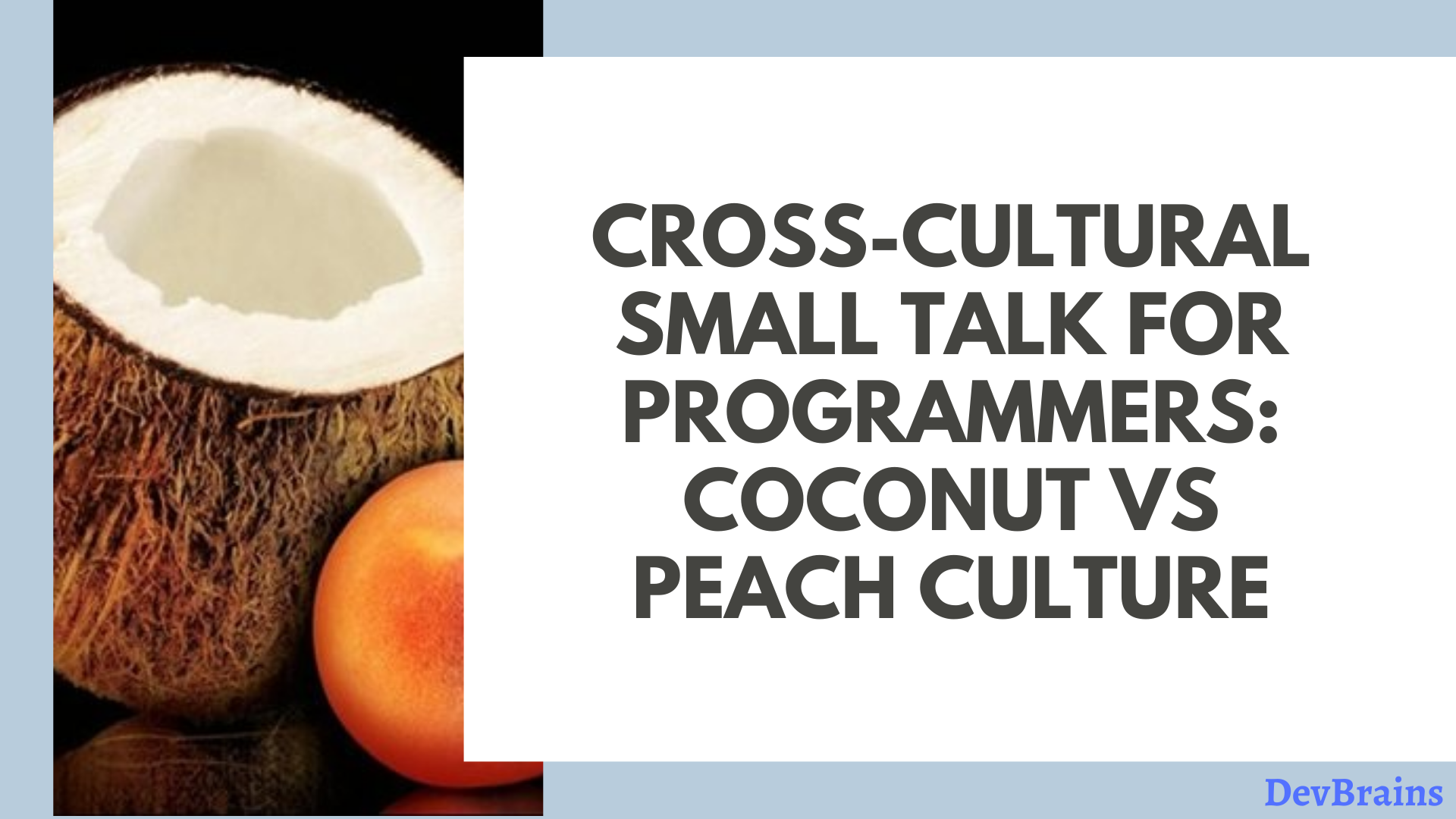Cross-Cultural Small Talk for Programmers: Coconut VS Peach Culture
Communication


We have some challenges for you!!